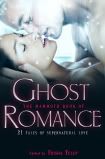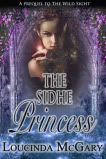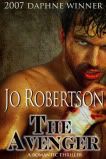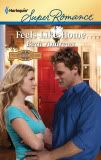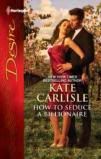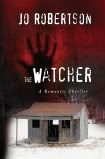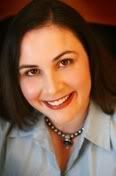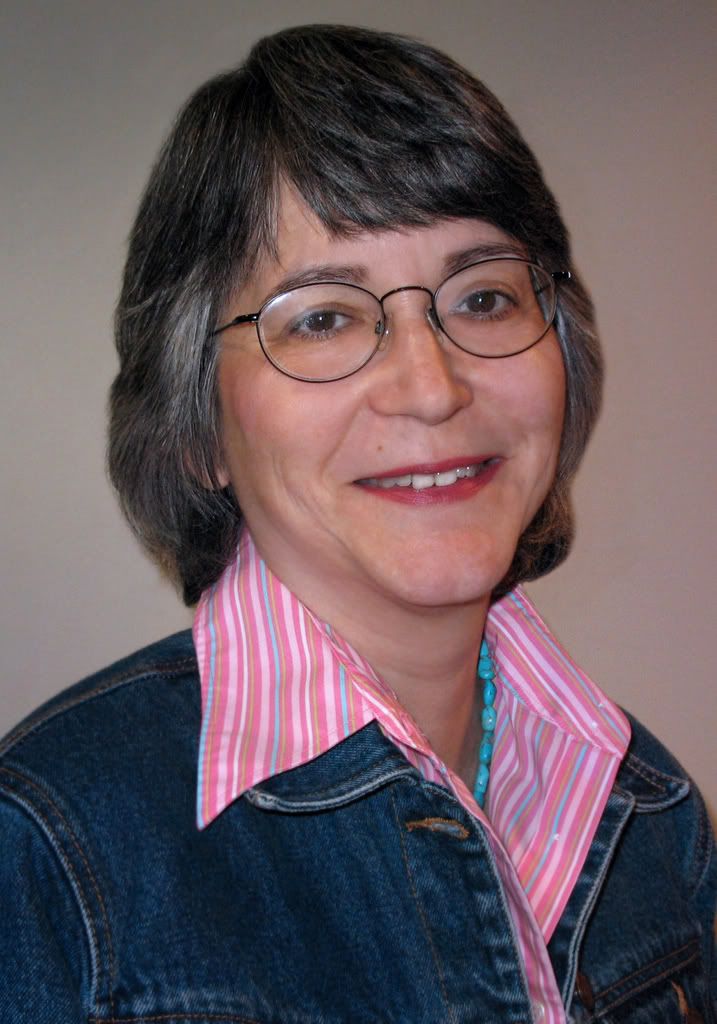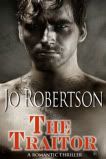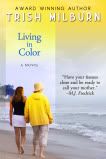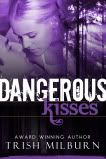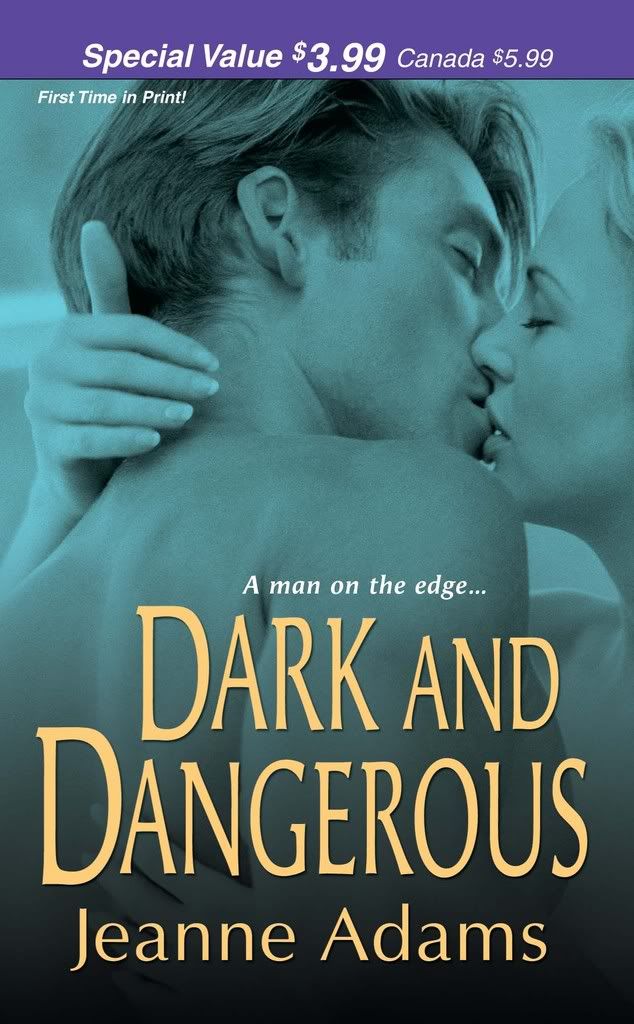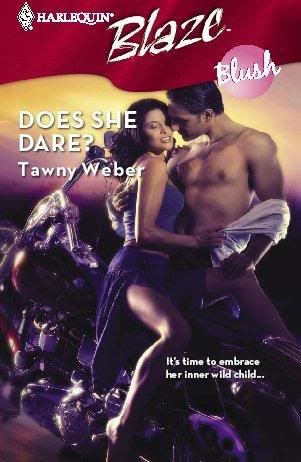
Monday, April 30, 2007
Celebrating, big time!!!

Sunday, April 29, 2007
Fence sitting (or, could someone get me a cushion)
 I'm a fence sitter. No, it's not that I can't make up my mind about a topic. This type of fence sitting is what those of us who have been writing a long time and had a good amount of success in the realm of the unpublished writer do. We sit up here on this fence looking over at the Land of the Published (which I visualize as looking like Hobbiton from the Lord of the Rings), wishing for that elusive call from a publishing house that will finally knock us over to the other side of the fence. I've often joked that I've been sitting on this fence so long that my butt hurts.
I'm a fence sitter. No, it's not that I can't make up my mind about a topic. This type of fence sitting is what those of us who have been writing a long time and had a good amount of success in the realm of the unpublished writer do. We sit up here on this fence looking over at the Land of the Published (which I visualize as looking like Hobbiton from the Lord of the Rings), wishing for that elusive call from a publishing house that will finally knock us over to the other side of the fence. I've often joked that I've been sitting on this fence so long that my butt hurts.Last weekend, my local RWA chapter celebrated its 10th anniversary. That made me think about where I was 10 years ago compared to where I am in my career now (and it is a career even though I'm not published yet). Back then, I was muddling through my first romance manuscript, which went through so many different versions that I eventually lost count. It was the only historical I wrote, but over the intervening 10 years I've written 17 additional manuscripts ranging from romantic suspense to young adult. Back then, our chapter had one or two published authors. Now, roughly a third of the chapter is published, including my two long-time critique partners. One of those CPs won a RITA last year; the other is a RITA finalist this year. Back in 1997, being a Golden Heart finalist was this dream way out of reach. But it was a goal that I worked toward, and when I finally finaled for the first time in 2003, I about passed out. Literally. I had to sit down on the side of the bed because I was shaking so much. In 2004, I accomplished yet another dream -- I won a Golden Heart. And what did I do when I got on the stage to accept it? I bawled like a baby. I'm told I made many of the people in the audience bawl too. Sorry if I ruined your mascara.
As I began to have success in the Golden Heart and other contests and began to get requests for revisions and encouraging words from editors, as I signed with my dream agent who had such glowing things to say about my writing, I felt that my big dream of getting published just might be on the horizon. I felt I was so close that in January of 2005, I left my full-time job as a magazine editor to write full-time. Then the editor who had two of my manuscripts and gave me every indication a sale was just around the corner left the publishing house and those manuscripts came sailing back so fast that I was stunned. Yes, tears were shed, and I wondered if I'd done the most stupid thing I'd ever done in quitting my job.
I could have quit and gone back to a full-time job, but I didn't. I've had this dream for so long, and I've put so much time, effort and trips to the post office into it that I'm not quitting. If I do, it will have all been for nothing. And I've never been a quitter (okay, I quit running track and playing basketball after two years, but let's be honest -- I sucked at both).
I'm not saying that there aren't difficult days. When manuscripts that my agent and I really, really believe in get rejected, there are still tears and brief dips into the dumps. Dairy Queen makes a mint off me when those things happen. Chocolate Extreme Blizzards are the best comfort food. When people see me at conferences and ask, "So, when's your book coming out?" and I have to respond, "I haven't sold yet", to which they say, "I could have sworn you'd sold," -- yeah, that's a bit of a bummer.
We're writers and thus a bit neurotic, so those little devils on my shoulder often whisper things like, "It's never going to happen. Quit wasting your time, and get a real job" or "Yeah, Golden Heart finals are great, but aren't you getting to the pathetic stage? Maybe you've plateaued, and this is as good as it's going to get." You know what I do after I inevitably listen to that little devil? I punch him in the face and get to work on a new story idea, the one that's going to wow the editors and start a bidding war and finally push me over this fence. The view's nice from up here, but seriously I think I'm getting calluses. :)
If you're a fence sitter, try to enjoy the success you've had so far but keep pushing yourself to do more, do better. Believe that you WILL sell. Do not let defeatist thoughts take over your mind or darken your speech. Reaching the Land of the Published takes timing, hard work, belief in yourself and a positive attitude. I'm hoping we all are having a nice sunny picnic on the other side of the fence very soon.
Saturday, April 28, 2007
Pruning Back The Deadwood

The weather in Dallas the past couple of weeks has been great. Highs in the mid-seventies and lows in the low fifties. So Rocky, the seventy-five pound wonder dog, and I have been puttering around in the garden. Okay, I putter. Rocky lays on the grass like an imperial sultan keeping an eye on his domain.
Armed with the new set of pruning shears my husband bought me, I attacked my rose bushes. It was a daunting task as I'd let them go last fall and now had numerous branches nearly seven feet tall. Yes, things grow bigger in Texas. Working as my father taught me years ago, I clipped back the branches over my head first, then selectively cut those limbs that crossed over others, as they would prevent the best growth from coming through.
Finally I stood back and studied my work. I wasn't happy. This was going to require more pruning to get the desired results. I continued cutting through the thorns and thicker stems until I'd cut the bushes back to within five or six inches of the soil.
As I knelt and worked the dead leaves from around a root ball and turned the soil to mix in fresh peat moss and fertilizer, my husband wandered over to see what I'd wrought upon the thorny bushes. "You've killed them," he said, shaking his head.
"No. This pruning is a sort of tough love for my plants," I explained as I spread the new mulch. "I've simply cut out the deadwood to allow new, fresher plant life to grow. It will give us a more abundant supply of flowers and healthier plants in the long run."
Sometimes that is how a writer must view their work. The characters or the plot can get so cumbersome that it grows way past the manageable stage. At this time the writer must put aside their trepidation and pick up their pruning shears to try to tame the mass before it withers and dies from neglect. This task can appear daunting to the novice and cumbersome to the more experienced.
Occasionally only a small pruning is needed to tame the work back under control. Chopping off the wild shoots to center the plot. Trimming back those secondary characters, no matter how much we love them or their quirkiness, whose cross purposes deflects from the story's core. And sometimes a simple trimming will not finish the job. Then the writer must gird her loins and do a full scale cut back in order to restore the story's central theme and produce a final book that thrills both the reader and the writer with its passion and beauty.

So today Rocky and I were back out inspecting the roses. Dozens of new shoots with their red furled leaves covered all the plants. They'd come alive from the severe pruning and I anticipate yellow, peach, red and white blossoms to fill my house soon.
I get the same thrill when the story I've trimmed back and reworked touches me deeper in my soul than the original mass of tangle limbs.
Have you ever had to cut back a story or wished a writer had done the pruning to produce a better product?
Thursday, April 26, 2007
Interview With Stacey Kayne
AC: Please tell us your "call" story:
SK: It was July 24th of last year, two days before I had to leave for RWA National. I was particularly depressed on this Monday morning, as I had been for a while. National was a couple days away and I had told my hubby I wouldn’t go unless I‘d sold a book, but being a double GH finalist, I had registered anyway. This was my third year as a GH finalist, so some of the golden glow had worn off, but I still viewed every final as an opportunity I couldn’t waste—I had to go! Fighting the guilt and sense failure, I walked into my office with my morning cup of tea, as usual, plopped into my chair, as usual, hit my email and thought, “You are so pathetic. Coming in here every morning, checking your email as though some message is going to change your life.” And then I saw it. The subject title MUSTANG WILD, the sender a Harlequin editor I’d emailed some westerns to just a few weeks before. I clicked on it, and did a scatter read, “We’re interested in Mustang Wild…convenient to call…really like this discussion before you leave for Atlanta...” I bolted from my chair, ran into the living room, looked at my husband and shouted, “Holy shit!” Then I ran back to my computer, with my hubby chasing after me calling, “Holy shit, what?” I emailed that I was home (and awake), unplugged my dial-up and the phone rang—that fast. In the midst of THE CALL, my hubby sniffled behind me. Of course he WASN’T crying (wink, wink), but his sniffles meant so much to me. By the time I’d talked to my editor and my agent I was late for my son’s orthodontist appointment and had to dash out the door—reality waits for no one. I did go out to lunch with my hubby and two sons afterward, and then out to dinner—my favorite Mexican restaurant. My hubby & boys surprised me that afternoon with a cowgirl hat and roses. There was champagne at some point. The best part was being able to board the plane for Atlanta guilt free :)
National was a couple days away and I had told my hubby I wouldn’t go unless I‘d sold a book, but being a double GH finalist, I had registered anyway. This was my third year as a GH finalist, so some of the golden glow had worn off, but I still viewed every final as an opportunity I couldn’t waste—I had to go! Fighting the guilt and sense failure, I walked into my office with my morning cup of tea, as usual, plopped into my chair, as usual, hit my email and thought, “You are so pathetic. Coming in here every morning, checking your email as though some message is going to change your life.” And then I saw it. The subject title MUSTANG WILD, the sender a Harlequin editor I’d emailed some westerns to just a few weeks before. I clicked on it, and did a scatter read, “We’re interested in Mustang Wild…convenient to call…really like this discussion before you leave for Atlanta...” I bolted from my chair, ran into the living room, looked at my husband and shouted, “Holy shit!” Then I ran back to my computer, with my hubby chasing after me calling, “Holy shit, what?” I emailed that I was home (and awake), unplugged my dial-up and the phone rang—that fast. In the midst of THE CALL, my hubby sniffled behind me. Of course he WASN’T crying (wink, wink), but his sniffles meant so much to me. By the time I’d talked to my editor and my agent I was late for my son’s orthodontist appointment and had to dash out the door—reality waits for no one. I did go out to lunch with my hubby and two sons afterward, and then out to dinner—my favorite Mexican restaurant. My hubby & boys surprised me that afternoon with a cowgirl hat and roses. There was champagne at some point. The best part was being able to board the plane for Atlanta guilt free :)
AC: What other books and/or writers have influenced you thus far?
SK: I started reading romance novels six years ago when I realized I was trying to write a love story. When I say I started reading, it was more like cramming for a final exam--I read about 300 books in a span of two months, trying to figure out the layout of a story and how to unlock the rhythm between prose and dialogue. Having no preference of authors, I quickly became fans of Dorothy Garlock, Laveryl Spencer, Elizabeth Lowell, LL. Miller, and few sporadic authors. I wondered why I consistently liked their books the best. I wanted to figure out what captivated me about their writing, why they drew me in more than the others. For me, it was the rhythm of their writing, the way they integrated prose and dialogue, so that the story didn't have to slow down for either one, but had a smooth continuous flow. As an unpublished author, I felt I wasn't trying to sell a book, but the way *I* told a story. I like to think that early obsessive compulsive reading was influential in developing my own style.
AC: How do you keep your characters and plots feeling "authentic" instead of like every other cliche of the Old West we've all seen/read?
SK: Other than that early burst of reading in 2000, I don’t have a very broad reading base, so I haven’t a clue of what’s been overdone or categorized as cliché. When developing a story, I don’t look outward—I look inward. Because each character has their own unique past, characteristics and quirks, so do the events that surround them. And then I strive to make my characters as real and vivid on the page as they are in my mind.
AC: You have two more Westerns due out from Harlequin Historicals but what's next for you after that? I know you said elsewhere that you were poised to try something different than Westerns. Is that still true?
SK: Truth be told, I stopped writing western historicals three years ago when it became very apparent the rumors were true—unless you were a western romance icon, new western historical authors were NOT being picked up by the major publishers. I do believe there was a high interest in werewolf cowboys and erotic western lovin’, but that just ain’t me. If I was going to sell a western, it had to be MY kind of western. My agent said I could do one of two things, wait out the market or focus on something new—I did both. I hung up my literary spurs, but kept testing the waters with my finished works, and I focused on writing romantic suspense, a place where cowboy justice could still rein and an adventure was waiting to be written. I do intend to pursue the publication of my RS manuscripts as well. They’ve won numerous awards and PLAYING FOR KEEPS was also a Golden Heart finalist last year. I’m currently working on a new series involving a certain hunky hit man—once I turn in my fourth western, that proposal will be at the top of my FINISH list.
AC: Any advice, words of wisdom or general comments you care to pass along to your AYU (As Yet Unpublished) buddies to help them down the long rocky road to publication?
SK: When you think you’ve hit bottom and there’s no way in high heaven you will ever publish…KEEP WRITING. To quote my pal Marlene’s sig line: “If at first you don’t succeed…try to hide your astonishment.” *g* Persistence is everything. Study your market, polish your craft, start a new book and keep SUBMITTING.
AC: Finally just for fun...Casting Call! Who do YOU want to cast as Jed and Rachell in the film version of "Bride of Shadow Canyon"? Or Tucker and Skylar in "Mustang Wild" the  movie?
movie?
SK: Oh wow—that’s hard. I don’t use movie stars as character models. The characters in my mind are completely unique. The only actor who has come close was Sam Elliot and the hero in BRIDE OF SHADOW CANYON, Jed Doulan. That was before my editor shaved off Jed’s mustache *pout*, and stripped ten years off his age. But the hot velvet voice, OH YEAH, that’s still the same. Perhaps the equally gifted Josh Turner could make his acting debut in BRIDE OF SHADOW CANYON. After a quick internet search, I have to say Lindsay Lohan is good match, physically & vocally, for Rachell.
As for Tucker and Skylar in MUSTANG WILD…Skylar is already on the cover of the book *g* and I suppose you can’t go wrong with a Stetson man, Mathew McConaughey could pull off the wiry and playful Tucker Morgan.
Wednesday, April 25, 2007
Learning To Let Go

Tuesday, April 24, 2007
Playing Nice
I feel a certain courtesy toward fellow authors, who put their blood, sweat and tears into writing the book of their heart. So I think twice about criticizing a novel in a public forum, though I might analyze what worked for me and what didn’t in the privacy of my own study.
I wish others would extend the same courtesy. Before the internet, you could express an opinion and it need go no further than your own circle of friends. Now, ill-considered rants are broadcast to thousands in the blink of an eye.
That’s not to say I want to stop people reviewing books or talking about them. But might I just send out a plea to aspiring and published authors to stop and think before you make a disparaging comment about someone else’s pride and joy? Are you being completely honest about your motives, or has the green-eyed monster been whispering in your ear? Have you even read the book in question? Will you like it if something similar happens to you?
So...tell me something good. Tell me something a writer has done for you or you’ve done for another writer, to help a career or brighten a day.
Monday, April 23, 2007
Making a List, Checking it Twice
However, since I’ve started writing, I’ve found I have lists everywhere. There’s a list of research questions that require answers. There’s a numerical accounting of pages written day-by-day and an editing progress list. I have a character inventory list of physical characteristics, quirks, and qualities – just in case I’m asked to do a series or maybe even a sequel to a book previously published. I’m told those things happen – but I suppose it helps if one has a book on the shelves . I have a list of writing goals which is important in that if I don’t meet my goals in a three-week timeframe, I have to cough up five dollars. If you realize how incredibly cheap I am, you’d understand that this is an important list indeed. Still, it’s not the most important list.
That honor belongs to my dream list. About five years ago, I typed up a list of all the things I wanted to do in my life. Many are writing related – teach a workshop at the RWA conference, give an acceptance speech for the Golden Heart (or RITA). Many are not writing related – go on a cruise, spend the night in a bona fide castle, go up in a hot air balloon, fly first class. Anyway, I listed about twenty “dreams” on that first list. I figured one had to recognize one’s dreams to accomplish them. I keep the list posted by my computer.
Every year I add a few new dreams to my list and I’m proud to say I’ve had occasion to scratch some off as having been accomplished. In this crazy industry where so many things are out of our control, a dream list is a necessity to remind one that even if the manuscript didn’t sell this year, dreams are still realized. Or if not the dream itself, progress toward the dream. Believe me when I created the list, I thought the possibility of ever scratching out a single line bordered on the impossible.
So tell me – what would be on your dream list., both writing-related and non-writing. (Perhaps if I like yours, they’ll suddenly share an appearance on my list as well) :)
Friday, April 20, 2007
Blue, Green, or Turquoise?


My husband and I are writing partners (a whole nother series of blogs in itself) and we are currently revising our manuscript, taking into account comments from our agent. One of her concerns was that the heroine had inconsistent eye-color.
"What is she talking about?" I asked. "Our heroine's eyes don't change color! I read a novel once where the heroine's eyes changed from brown to blue partway through and it really bothered me. We would never do something like that."
He laughed and pointed to the e-mail from our agent. "She says that sometimes we describe the eyes as sea-green and sometimes as turquoise."
I set my hands on my hips. "So? That's the same thing."
Then it hit me. I grew up in New Mexico where turquoise jewelry is a mandatory part of every wardrobe. There, the most authentic and lovely pieces are not treated to maintain their color and so change as they are worn and exposed to air, to sun, to touch. They deepen in hue, they depart from a uniform sky-blue to a shifting palette of greens and blues. Like the sea. That is turquoise.
Our agent's office is on 5th Avenue in New York. She doesn't carry the memory of sun-browned Navajo women sitting on the sidewalk beside their jewelry-strewn blankets, surrounded by silver and gemstones in every hue of the sea.
As I ran a search-and-replace for the word "turquoise" I had to smile. It was another beautiful reminder that a story is a shared dream. Both the writer and reader bring their own history to the page. Their experiences can cast a hundred shades of meaning onto a single word, coloring it with all the hues of polished turquoise.
Wednesday, April 18, 2007
MY BRILLIANT CAREER?
Our very own Bandita Trish is the RWA National PRO Liaison, and in her RWR column this month she touched on a subject that has been a personal sticking point for me. When can you call your writing a “career?" Trish makes a compelling argument that if you are writing and you are submitting your work then you have a “writing career.” If only I could get myself to buy into that concept.
Unfortunately, I can’t.
Call it a mental block, my faulty upbringing, or our overall society’s obsession with monetary compensation. Whatever the reason or excuse, I equate a career with income. While I’m now well into my fourth year of writing as my only “work,” so far I have not earned a penny and therefore do not see it as a valid “career.”
I’m lucky enough to live close to our own Bandita Jo and we are face-to-face critique partners. We were having a discussion about our “writing careers” and the validation of publication a couple of weeks ago. We concluded that a big part of our problem with not seeing our writing careers as such stemmed from our previous careers. In those careers, there were definite milestones to be reached to achieve desired results.
In my previous life, I knew that if I did A + B correctly and diligently, then I would achieve C. And I would be compensated accordingly.
 So far, this has not been my experience with writing. I’m not bragging, but simply stating fact when I say that for the past several years, I’ve busted my butt learning and doing A, B and even WXYZ, all to no avail. Still no C. Most of the time, it feels like for every step forward I struggle, I’m slapped back two or three. The milestones in my “writing career” seem frustratingly far away. Or, once I do achieve them, turn out to have no real significance in actually reaching my ultimate goal.
So far, this has not been my experience with writing. I’m not bragging, but simply stating fact when I say that for the past several years, I’ve busted my butt learning and doing A, B and even WXYZ, all to no avail. Still no C. Most of the time, it feels like for every step forward I struggle, I’m slapped back two or three. The milestones in my “writing career” seem frustratingly far away. Or, once I do achieve them, turn out to have no real significance in actually reaching my ultimate goal. Also in my previous life, I’m not ashamed to admit that I started on a very low rung of the government bureaucratic ladder and struggled along for a dozen years climbing through that crowd to rise to a management level that not a lot of people achieve. My point being that I’m not a stranger to goal setting and struggle, not to mention disappointment. Furthermore, when I was clinging on those lower career rungs, I learned a valuable lesson: Act As If. When I was a lowly clerk and wanted to be an analyst, I took my cues from the analysts around me and “acted as if” I were already an analyst. Eventually, I became an analyst and again, used my role models to “act as if” I were a manager. Once again, after the required work and struggle, I became one.
Sorry to say, that so far “acting as if” I were already a published author hasn’t helped me achieve the desired result. In fact, the way to achieve my goal seems perpetually changing with no clear path. And frankly, without that validation of selling, having my book out there being read by somebody, I don’t feel like I have a “writing career” at all. Am I the only one suffering from this angst? Do I simply need a new and improved definition of “writing career?” I’d love to know about your “writing career,” and any and all advice you’d care to give me about mine.
Tuesday, April 17, 2007
Heartache
But I also know that once my mind has absorbed what happened, I’ll need to escape for a while. And like so many other people in the world, I’ll reach for the next romance on my TBR shelf. We all know why people read romances. We need the escapism. We need to know there will be a happy ending in a world where that doesn’t always happen.
When heartache strikes, as writers I feel we need to lock into those emotions. We should write the emotions down and refer back to them later when we are trying to decide how our characters would act. This can only strengthen our writing.
Here’s my problem of the day, I’m at the point in my current work in progress that I have to write the happy ending. I’m not happy today. How do we as writers work past our own emotions and key into our characters when we’re really not in the mood to do it? When our emotions are in upheaval? When our personal lives are out of control due to illness or martial or family problems?
I wish I had the answers to those questions too. For me, today I will attempt to block out all the news, stay off the internet and do my best to hear my characters. But I can do that only because while I have known many people who went to Va Tech, it’s not personal to me. So how do we as writers continue to write happy when our life is in complete upheaval? I’d love to hear your stories.
Monday, April 16, 2007
How Much Perspective Do We Need?
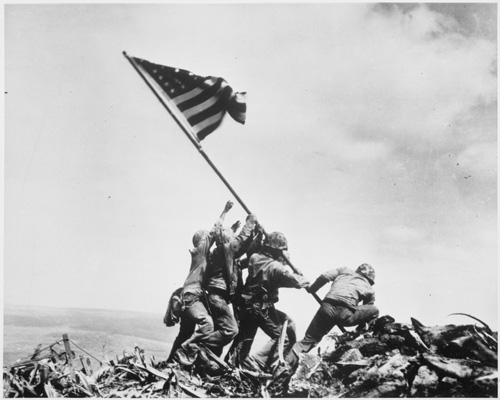 Flag Being Raised On Iwo Jima
Flag Being Raised On Iwo JimaI recently watched 'Flags Of Our Fathers', a WWII tale of the "heroes" who raised the (second) flag at Iwo Jima. This was not a feel-good film - and it wasn't because of the blood and gore, either. We had plenty of that in 'Saving Private Ryan' which was nothing but a feel-good film, despite the severed limbs and high body count. 'Flags' was a scrutiny of a single event involving a small group of soldiers which highlighted all the worst parts of any war. The politicking, manipulation of the media, manipulation of the country's perspective, the outrageous funding efforts and the government's lack of compassion for the individuals.
My husband asked what I thought of this movie and my first thought was not about any of that. It was that a film like that could not have been made much earlier than now and been acclaimed. It has been more than 60 years since Iwo Jima and most of the people who remember it firsthand have died. So now, a movie that exposes the less-glamorous aspects of that particular war can be watched without it feeling like ripping a scab off a wound. World War II was, after all, our most popular war.
Yesterday was Holocaust Remembrance Day in the USA. I remember watching the miniseries 'Holocaust' on TV when I was a girl in 1978. Even though I was thirteen and had no family affected by that horror, I recall how controversial it was and how hard it was for Americans to watch. Persons personally affected by the Holocaust argued that it trivialized the tragedy, while supporters say it increased Holocaust awareness and helped it not to be forgotten. I believe it was simply too soon. Even though thirty years had passed, emotions still ran high.
In marked contrast, many all-too-realistic films have been made about our least-popular war, Vietnam. I still know many Vietnam vets and most do not watch any of those movies. It's too soon for them. Others watch them and the watching stokes their still-simmering anger about the futility of it all. No efforts ever made us feel good about Vietnam.
Lately, writers and film makers have been trying, tentatively in most cases, to create stories around the events of September 11, 2001. Those closest to the events still cry "too soon". Others argue that companies are cashing in on the tragedy, that these works trivialize the event. While this was a very personal attack for the US and it was certainly a senseless tragedy, in terms of scale only, it was not our most devastating loss. In terms of scale, it is on par with Pearl Harbor. It has been 65 years since Pearl Harbor and I have to tell my children every year what it was, because it isn't real to them as it wasn't real to me. It is history.
It has only been six years since 9/11. Should we, as writers, wait another fifty years before we create tales about it? Wait until the emotion fades, until we gain perspective? Until we see whether our ongoing war is among the most or least popular? Or is there something to be gained from plumbing what will someday be "history" for our readers today?
Saturday, April 14, 2007
The Power of Transformation

I think they do, and for whatever reason, it's often that external change than initiates the internal change. I had a little plastic surgery a few years ago. I know, TMI right? ;-) But seriously, I had a reduction of a part of my anatomy that most women seek to expand, rather than contract. After the surgery, I looked in the mirror and felt better about myself than I ever had before. It was crazy, but that external change fundamentally altered the way I showed myself to the world. I felt confident for the first time about my body, didn't fear attracting attention the way I once had, even laughed easier and enjoyed social events more because I wasn't wasting time worrying about the way I looked.
Thursday, April 12, 2007
We Are Not Alone
Oh, sure, everyone knows what a mentor is; a trusted counselor or guide. We've all had them in our lives. We weave them into our stories. Vogler discussed the necessity of them in "The Hero's Journey." They make the way easier. They teach and they scold and they make you better.
I did not realize when I started seriously pursuing publication in 2000 how important mentors would be to me. I could not have progressed nor learned so much without their input and advice and example.
My "first" was Renee. A member of a local chapter she was the first one to EVER read any of my work. I was a wreck. I broke out into cold chills, my heart was racing, my mind was whirling and she'd only read 5 pages. She looked at me and said "This is so much better for a first effort than mine ever was....now let me show you how to fix it." She suggested changes, she taught me about POV and conflict and pacing. She praised me when I took what she'd said and applied it to my writing. And I started getting it.
And then she said "Don't quit your day job."
Talk about a bubble popper! She wasn't saying it to be mean or degrade my progress. She was telling me to base my expectations in reality. Writing was hard work. Getting published was a process. I wasn't going to get rich overnight. (Darn. Cancel that seaside cottage in Ireland). But it fostered within me a dedication to the craft and fueled my basically stubborn nature to keep at it until I succeeded.
I started attending RWA National conferences. I learned from mentors who ate lunch with me, shared an elevator, gathered in the bar to talk writing. You learn a lot by watching and listening. Heck, I even learned from all the astounded, pitying looks I got when I would say I was writing a Roman historical. That was ok because what they didn't know was that I was taking all their knowledge on telling a good story and dressing it in a toga....the same story that was my 2006 Golden Heart finalist. Thanks!
My current mentor is TL. Destined by fate, I believe to be in the role of teacher, task master, cheerleader and overall therapist. She is my critique partner and friend and she has truly taught me what it means to be a professional author. She listens when I whine. She rejoices when I win (as does her dog Buckarudi. You've never celebrated a contest final until you've jumped up and down with a sixty pound Airedale Terrier. LOL). She believes in me and because of that I believe in myself.
Because of my mentors, I am a more grounded aspiring author. I am more determined. I am dedicated and I am more polished. Their lessons and examples are now mine to gift and I do so gladly.
What mentors have helped you in your writing career?
Wednesday, April 11, 2007
Art and the Hard Freeze
In my growth as a writer I’ve come to understand the importance of exposing myself, regularly, to all kinds of art, and in particular, things of great beauty, whether natural or manmade. Things that make my soul soar. (Peony blooms, and their fragrance, do that for me.) Things that spark pure joy and that lift me above my current circumstance or state of mind. Things that take me into “the zone” where I can create stories that are larger than life.
Last summer I viewed an exhibit at a Nashville museum that included six Monets. I went twice, and although there were paintings from famous artists spanning six centuries, the second time I went most specifically to look again at those Monets. I maintained my civility through most of the visit, but I kept circling back to look at one in particular. I can't remember the name of it, but it was a flood in Paris. I stood and just stared. I was awestruck by the power and the emotion that it evoked in me. When nobody was looking, I surreptitiously blotted the corners of my eyes with my sleeve. Yep. That old painting made me cry.
In my search for ways to get at and maintain my creative self, I take a semi-regular watercolor class. The instructor is a gifted artist, and she’s also gifted at encouragement. She helps me get better without ever crushing my spirit. This is what the baby artist needs. I’ve worked in oils and acrylics enough to gain some basic skills, but watercolor is harder for me. I have to be spontaneous and work fast. Yet at the same time I have to have a plan because we don’t use white. Whatever I want white, I have to leave white from the beginning. Not an easy thing for Cassondra, the control freak. Through this process I’ve asked a lot of people the question, “What is real art?” Not just a basic definition, but what makes that Monet different from the oil paintings I did in high school? I could paint buildings and trees and water. But I could not make anybody cry. I’ve seen portfolios of my watercolor teacher’s work. Each painting is beautiful, but now and then I come to one and my reaction is “Oh! Look at THAT! Oh, my gosh.” And the interesting thing is, when other people view the portfolio, most of them stop at the same paintings. The teacher doesn’t have those paintings any more. They sold at their first showing. What makes them different?
Last week I ordered a book from Barnes & Noble. It was a book Jo and some of the other Romance Bandits had been discussing on our yahoo loop, the one Inara blogged about a couple of days ago, and it sounded really interesting. I sat down on Monday in the café to read a bit, to see if I wanted to fork over the $24 price. It was obvious from our loop discussions and from what I read, that this author had very definite ideas about what is “real art” and what is not. And those ideas did not include the stuff I love to read—specifically romance or other genre fiction—stuff that allows my soul to soar and me to leave behind the mundane and sometimes painful life for a little while. Stuff that will make me cry—but because of the beauty of life, not because of the horror. After a couple of hours, I took the book back to the service desk and said, “Thank you, but this one is not for me.” You know, that author may well be right. Perhaps what I do—telling stories of suspense and the growth of love and a relationship that promises a happy ending—is not high art. And perhaps he’s wrong. Perhaps whatever causes my spirit to soar is art.
In truth, my question is still unanswered. But the bottom line is this. I’m a bit like the baby hostas at this point. I’m not a brand new writer, and there are few things that boost the unpublished spirit like a Golden Heart final. I know last year’s final boosted my spirit and confidence. But with contests and sometimes winning and sometimes losing, added to rejections and the politics of the business, my writers voice could still get crushed and frozen in the midst of it all. The last thing I need is to allow my inner spirit to be exposed to the hard, biting freeze of criticism that says what I do is not art and is therefore unworthy.
So if I’ve learned nothing else through the years of writing, and the questions about “what is art,” I have gained the spunk to nurture my inner writer—cover it and uncover it religiously and do my best to save those buds that will turn into explosions of story—just as I painstakingly covered and uncovered my peonies last week. If I don’t protect my spirit from those hard freezes, there won’t ever be a chance for somebody to look at my work and laugh or cry or hate or yearn or otherwise feel. Because that seems to be the common ground. If it makes a person feel deeply, it’s probably legitimate art. As artists, we have the choice to cover or uncover our hearts and our gifts when we’re ready. No hard freezes for me.
Tuesday, April 10, 2007
Places of the Heart

I first visited the Scottish Highlands in 1985 in my mid-twenties on what I thought was a whirlwind tour of Britain just before I flew back to Australia. I'd been away about six months and had hit a point where I was sick of unfamiliar things and people and tired of dealing with all the annoyances created by living out of a suitcase for that amount of time. I'd tried to be a housekeeper in London and lasted all of a week. The experience was so awful (incontinent dogs were the least of the problems!) that I decided I'd spend two weeks seeing what I could of the UK by train and then I'd go home (I'd spent the six months travelling in Europe).
I did a day tour on a coach out of Edinburgh which was billed as a taste of the Highlands. It sure was that - as you can imagine, the amount of territory covered in just a day wasn't huge. And it rained! As it regularly rains in Scotland. We went to a couple of rather cheesy woollen mills, I remember, where you could buy stuffed toy Scotty dogs (shades of the incontinent London beast, a Highland terrier!) and silly Loch Ness souvenirs. Nessy in a bright red tartan tamoshanter, anyone? For a lot of the day, the weather was so misty and cold and wet, you couldn't even see outside the bus windows.
Anyway, after a very ordinary lunch and an encounter with some Highland cattle and a lot of Highland mud, the bus went over the hills from Loch Long, past a lookout called Rest and Be Thankful, which given the steepness of the terrain, made perfect sense to me, and down to Oban on the west coast.
And I literally fell in love at first sight.
The water, the islands, the light (the weather had cleared marginally by now), the people, the rising hills in the background. This was literally the most beautiful place I'd ever seen in my life. The wildness and the grandeur of this landscape spoke to me in a way nowhere else ever has.
I've been back several times since, both on that particular trip, which ended up lasting another 18 months, on a shorter trip in 1995 and I had a couple of months wandering the isles and the coast in 2004. And the magic has never failed me. The west coast of Scotland and the Hebrides are literally the places that live in my heart.
What's weird is that this is Argyll where my Campbell ancestors came from, although whether they came from the mainland or the isles is long lost in family history. It makes you wonder about race memory. The area is so beautiful, I think most people are overcome with wonder when they strike it, so perhaps I'm just a victim of magnificent landscape and not a throwback to my Scottish ancestors after all.
I always said I'd never write about this area because I wouldn't do it justice. But then it came time to recount the tale of a certain Scottish duke and his troublesome mistress. Almost against my will, most of the story of CLAIMING THE COURTESAN takes place in an isolated glen north of Oban. It's a fictional place but the descriptions are grounded in the reality of that glorious part of the world.
What are the places of your heart? Have you included them in your writing? How important is setting for you when you're writing?
What Lines Won't You Cross?
I didn't believe in strikes. I didn't believe in blatantly public resolutions to problems. I didn't believe in going hungry.
I was afraid to cross that picket line.
I'm in the middle of Anna Campbell's Claiming the Courtesan. I haven't read any reviews, but I've heard the novel evokes strong and diverse emotions among readers. Honestly, although I purchased the book to support my friend's debut novel, I wound up enamored of an exquisite new writer.
But, I wonder where all the controversy about Anna's book comes from? Do readers have immutable expectations from their writers or genres? Are there really lines we cannot cross? And damn, doesn't that sound a lot like category writing, which has been accused of being notoriously inflexible?
Or like censorship?
Or something?
As an English teacher of high school students, I always felt that I held an almost sacred obligation not to expose adolescents to works of a controversial nature that might violate their personal or family standards.
But aren't controversial works the very ones we learn and grow from?
One year at Parents Night, a mean-mouthed and sedately plain mother cornered me at my podium. I'd arranged the core works on the student desks and talked about the pieces that I teach sophomores: The Catcher in the Rye, The Merchant of Venice, All Quiet on the Western Front, and To Kill a Mockingbird. Guess which one she jabbed at with an accusatory finger, saying, "Now that you're the Department Chair, maybe we'll get rid of that one"?
She assumed because I was fairly religious, that I'd eschew Catcher for the use of that little "eff" word and the scenes with the young prostitute Sunny. She was completely unable to see beyond the facade of the book to the core morality of Holden Caufield.
Sad, sorry little woman!
I hadn't the temerity to tell her that I didn't believe in censorship of any kind. I only believed in guiding young minds to the finest works that I know of.
Funny, in all my decades of teaching, no one ever decried Shakespeare, even with teenage suicide, even with the beast with two backs, even with the old black ram tupping the white ewe in Othello, and with Macbeth's slaughter of Macduff's entire household.
I guess if you've been dead nearly five hundred years no one dares call you on the censorship carpet. No one says, "Hey there! You! Don't you dare cross that line!"
A final example: When Ryan's Daughter hit the cinema sometime during the 1970's, I literally begged my husband to take me to see this amazing tale of betrayal and love. Being a man, he fought me every inch of the way. Being a woman, I prevailed.
It was a very, very long movie.
A large man who overflowed his seat -- in so many ways -- sat to my right. My husband had the aisle seat. During the intermission, we left. The "R" rated movie was too graphic for us.
I would never walk out of that movie today.
Have I become more decadent, more accepting of looser values? Less centered in my moral parameters? No longer, like Donne's metaphor, the fixed foot of the drawing compass?
I like to think that decades of reading the most powerful literature the world has to offer has made me more open to life's complexities.
So I wonder, as writers, what lines will you cross? Or not cross? Do you draw invisible, immovable lines in the sand? What about as readers? Does that line change as you change? Why? Why not?
Sunday, April 8, 2007
Onwards and Upwards!

Saturday, April 7, 2007
Anyone Up For a Wild Weekend Meme?

Hey, is it a wild weekend again?!?! ALREADY?!?! WOW! This one kinda sneaked up on your old Aunty. Well, we had some fun last time with a "meme" Christine provided. So why not give it another whirl?
Bust out the cabana boys with the frosty drinks and answer these questions:
In honor of Easter... What did the Easter bunny bring you?
What is the farthest distance you've traveled from home?
What plot device makes you throw the book against the wall?
What GREAT book would you like to see made into a movie that hasn't been yet? And any casting suggestions?
And while we're on the subject of movies and casting, who would YOU cast as Stephanie Plum, Morelli, and Ranger?
Okay, Banditas, let's GET WILD!
Romance as Art
 Are romance novels art?
Are romance novels art? (It's a wild weekend, so I thought I'd see if I could stir up a little controversy!)
I can think of a number of reasons any style of genre-fiction could be attacked as non-art, but Butler's complaint is rather interesting. He thinks the key difference between art and non-art is that entertainment fiction is filled with "generalizations, abstractions, summary, analysis and interpretation," which ultimately separates the reader from the work and causes her to fill in her viceral reaction from her own past, her own fantasies, and her own aspirations. True art draws the reader into the psychology of the characters with "moment to moment, fresh, organically connected sense impressions...In the emotional reaction to a work of art we do not fill in from ourselves, we leave ourselves."
Thursday, April 5, 2007
Inspiration
I've been thinking about heroes lately. I need one.

Usually, I can go straight to my hot hunk hero photo gallery, grab one of my favorites and get down to it--er, well, you know, start writing. *g*
But for my latest manuscript, I'm looking for a truly unlikely hero. And all the magazine ads and Google images and Casablanca headshots I pour over aren't helping. I've got a picture of this guy in my head and there's no one else out there quite like him. He's mine, all mine. Now how do I bring him to the page? How do I describe that mouth of his? Can I just say "yummy" and leave it at that? Probably not.
Just for fun, here's my heroine Gracie's quick first impression of hero Cane's mouth in my American Title III book THE KAMA SUTRA CHRONICLES:
He looked rugged and wild and more than a little pissed off. Gracie didn’t know why he was scowling at her, but it didn’t detract from the rough beauty of his mouth, which was wide and firm, with the bottom lip slightly fuller than the top.
She loved that in a mouth.
Now where was I? Oh yeah. Heroes. They really do come in all shapes and sizes, don't they?
 One girl's Roarke is another girl's Sanjaya, right? (Scary, but true.)
One girl's Roarke is another girl's Sanjaya, right? (Scary, but true.)My goal is to make the reader believe that my hero, this dude--nerd, vampire, billionaire, whoever he is--can not only rock her world but also save it at the same time. Guess I'd better get to work.
So...how do you bring your characters to life? Do you need visual aids like I do? Or would you rather stick with what's in your own imagination? And by the way, who do you see playing Roarke in the film version? *g*
Wednesday, April 4, 2007
A Common Language...
As writers, words are the tools with which we sculpt a story. The funny bits come when we discover where the language has diverged. Whats the funniest example you've had of a confusion over language? Where do you, from your country, shake your head over the way another country uses a word?
We talked about thongs, but one of my favorites is the verb "to shag." Now those in the UK are blushing and giggling because it means to...ahem...make love. In the South of the US, where I'm from, it's dancing. Shagging is an intricate beach-music dance that everyone from granddads and grandmas to the tiny kids get out on the floor and do. I gave a talk to a group of businessmen from the UK. After the Q&A about my business presentation, one man raised his hand and asked why we needed lessons to shag. Ha! Tell me yours...
Tuesday, April 3, 2007
Learning New Skills
It was an all day event and the hours flew by as we worked on our current Works In Progress, (WIP). We learned about showing visceral responses of our characters to critical events in the story. We learned to use writing techniques such as anaphora, onomatopoeia, and opposite imagery to evoke emotions in our readers. We learned to read our work aloud to find examples of beat and rhythm.
Margie taught us about back-loading a paragraph or sentence to give it more emphasis and clue the reader to its importance.
Then Margie had us get out the many colored highlighters we brought and she gave us a brief overview of her EDITS system. Using different colors to denote different things in our WIPs, such as dialogue and description. Margie showed us how to get a visual assessment of our work. This would help us edit more deeply. Margie runs a month-long workshop on this and her teaching schedule, as well as lecture packets for both ECE and EDITS, is available through Pay Pal on her web site at www.margielawson.com.
The entire day empowered me. I came home after sharing a drink in the bar with friends, totally overwhelmed, but stoked. That evening I took out a proposal I'd planned to send to an editor and found I could use the techniques to really make my opening scene full of energy. It was a rush! These new skills took words I'd looked at a thousand times and made them new and exciting again.
It goes to show we're never too old or too experienced to learn something new. Have you ever taken this workshop? Have you ever come across something in writing or working that totally changed how you approached things? Have you ever stumbled upon a new author and thought, "Wow, I have to go buy everyone of her/his books?"
Monday, April 2, 2007
Interview with Natalie R. Collins
Natalie R. Collins is a master at different voices. She writes mainstream fiction for St. Martin’s and writes a hilarious dance teacher series for Berkley under Natalie M. Roberts. I appreciate her stopping by to answer a few questions for us!
KH: WIVES AND SISTERS captured my attention from page one. The insightful view into the Mormon culture was enlightening. I understand that you touched on issues very close to readers’ hearts. How did writing the book change you?
NRC: Well, it was definitely cathartic. I know that is SO clichéd but it’s really the only way to describe it. It’s like picking up the pieces of your past and putting them together, puzzle form, and then looking at the end result and saying, “Wow, so that’s how I got here. Now I get it.” And that’s what WIVES AND SISTERS was really all about. But it isn’t just my story. It’s the story of many, many people. I still get emails weekly from people who pick up a copy, and find something in the book to relate to, whether it’s a religious background, or a traumatic childhood. It’s sad to me that so many people just saw this book as an indictment. It’s not that, but rather a call to change. Does this happen? Yes? Should it happen? No. Anytime you are operating inside a closed, patriarchal society, there are going to be abuses. Unfortunately, people are people. And so it happens. As long as this society stays closed, it will continue to happen.
KH: Your book trailers are fantastic, especially the one for BEHIND CLOSED DOORS. Do you believe that visual media is the way of the future for promoting books?
NRC: Honestly, I don’t know. I know that a lot of authors are doing them, and my Web guru, Justin at Stonecreek Media (www.stonecreekmedia.com) is FABULOUS at putting these together. I just don’t know if they are the wave of future for authors. I’ve seen a lot of authors doing them, and I think they probably HELP, like any form of promotion, but I doubt that ANYTHING is ever going to top word of mouth, or Oprah Winfrey’s seal of approval. Someone saying to another person, “Wow, you have got to read this book,” is going to win hands down every time. I still think visual media works best to promote other visual media (i.e. a film trailer promoting a film).
KH: In your new release, TUTU DEADLY, you nail the setting perfectly, creating a world where moms push their daughters to become the next famous dancer. Are you using real life experiences, because it sure feels that you’ve lived this life?
NRC: Oh, absolutely. My youngest daughter is a dancer with pointe shoes in her eyes. LOL. She dances competitively with one of the best teams here in Utah (Don’t get pissy people. I said ONE of the best. I didn’t say the best.) and she competes in the professional and advanced divisions with solos.
I’m amazed at the talent that is out there, and it seems that Utah produces an extraordinary amount of it. The better you get, though, the more intense the competition. You would think some of these parents would realize that at this level, ALL of these girls are good, and so it’s just going to be a judge’s choice kind of thing. But they usually don’t. And the better the child gets, the weirder the parents get (although not always). I have seen perfectly nice, balanced people turn into raving lunatics when their child becomes a little bit good.
It’s hard for people to realize that, like with writing, judging of dance is subjective. What one person likes, another might not. I have seen fights at dance competitions, totally psychotic behavior in grown adults, said “grown adults” saying despicable things about children, etc. If you DON’T adopt a stance of humor, it will eat you alive. I’ve worked at our dance studio for about six years now, and so I see the good, the bad and the ugly, and am privy to a lot that others don’t see. It’s a good thing they don’t see it!
KH: You have an incredible talent with voice. The novels you write under Natalie R. Collins are very different from those under Natalie M. Roberts, but every lead character has a strong, unique voice. Can you expand on why you chose to write in first person (or did it choose you?) and whether you would consider writing a novel in third person.
NRC: My first novel, SISTERWIFE, was written in third. Oddly enough, it did not sell to a big publisher, although it has a very timely theme (polygamy in Utah). Is it the voice? (Incidentally, this book is now available as a free download from my Web site, www.nataliercollins.com) I don’t know. I like third, because it is not as limiting as first. But when I wrote WIVES AND SISTERS, I was toying with writing my own story, until my parents had a nervous breakdown about the idea. At that point, I realized that it would be unfair to them to do it, so I put that aside, but I had written some pieces and parts of it and I discovered that I was VERY strong in first person.
After I wrote the first chapter of W&S, I knew that it really WORKED for the book. I would still like to write more novels in third, and I think I will in the future, but the reason I stick to first for my St. Martin’s books is that I am telling these stories for these women. It makes it more personal, and the characters more believable and it gives the reader a connection that they need to get vested in a character from such an interesting and sometimes odd background. It also gives ME a connection that makes the stories more real. That’s just my personal opinion, of course.
And Jenny T. Partridge, well, I seem to channel her. Maybe I was a dance teacher in another life. My daughter’s dance teacher—who is a friend--read an ARC of TUTU DEADLY, and she said to me one day, “Uh, this isn’t supposed to be ME, is it?” I was amused. It isn’t her, but it’s a combination of a lot of dance teachers I have met. They are creative, and flighty, and eccentric—and often pure genius. And Misty has a great sense of humor, so I wanted to portray that in Jenny, as well as give her characteristics of other dancers I have seen. It worked really well.
KH: You have a fascinating background. One of the items in your bio that caught my eye is your editing role at the prestigious Sundance Festival. How did that experience influence your writing?
NRC: Well, I’m not sure it did influence my writing. How’s that for an answer? What it DID do was introduce me to the film world, and that was a fascinating experience. I met a lot of great people, and spent a few weeks operating on lots of caffeine and very little sleep, and I saw the workings of making films from the inside. It was wonderful to be in this creative stew with people who were so different from the usual Utah mold, and I know I’ll never forget it. But I’ve still never written a screenplay, and I’m not sure I ever will. It’s a very different form of writing, and I love creating my worlds and my stories in novels.
KH: Time for a little fun. What actress would you choose to play the Jenny Partridge role in TUTU DEADLY?
NRC: Hello? Like there’s a choice! Reese Witherspoon, of course. She would be PERFECT. (She’d have to dye her hair red, though. Think she’d go for it?)
KH: Definitely! The role would probably win her another Oscar! Thanks for stopping by and chatting with me about your work. Good luck with your new release, TUTU DEADLY!
Anyone who would like to learn more about Natalie can stop by her website at nataliercollins.com



